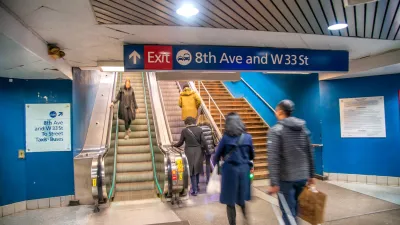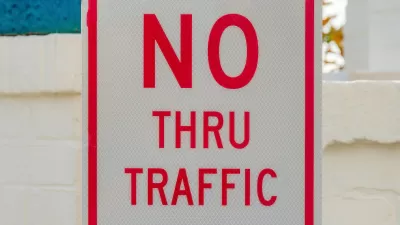For women and other vulnerable groups, navigating the urban space can be fraught with real and perceived dangers.

In an article in The Conversation, Rebecca Wickes describes five methods for making cities safer for women that go beyond just improved lighting and surveillance.
According to research, “Women are keen to see digital interventions across both day and night-time,” particularly real-time transit information and wayfinding. Women also want inclusion in the planning and design process. “If done from the outset, co-design ensures the lived experiences of community members and with the issues faced by communities are factored in.”
Wickes also suggests ‘walking interviews,’ a type of survey that discusses safety and mobility issues while accompanying women on regular trips. “By accompanying women on foot and discussing specific locations, we get a holistic understanding about how women move through these public places, or avoid them, and why.” Similarly, “Understanding the way women perceive their communities is key to creating safer spaces.”
FULL STORY: Urban planning has long ignored women’s experiences. Here are 5 ways we can make our cities safer

Maui's Vacation Rental Debate Turns Ugly
Verbal attacks, misinformation campaigns and fistfights plague a high-stakes debate to convert thousands of vacation rentals into long-term housing.

Planetizen Federal Action Tracker
A weekly monitor of how Trump’s orders and actions are impacting planners and planning in America.

In Urban Planning, AI Prompting Could be the New Design Thinking
Creativity has long been key to great urban design. What if we see AI as our new creative partner?

King County Supportive Housing Program Offers Hope for Unhoused Residents
The county is taking a ‘Housing First’ approach that prioritizes getting people into housing, then offering wraparound supportive services.

Researchers Use AI to Get Clearer Picture of US Housing
Analysts are using artificial intelligence to supercharge their research by allowing them to comb through data faster. Though these AI tools can be error prone, they save time and housing researchers are optimistic about the future.

Making Shared Micromobility More Inclusive
Cities and shared mobility system operators can do more to include people with disabilities in planning and operations, per a new report.
Urban Design for Planners 1: Software Tools
This six-course series explores essential urban design concepts using open source software and equips planners with the tools they need to participate fully in the urban design process.
Planning for Universal Design
Learn the tools for implementing Universal Design in planning regulations.
planning NEXT
Appalachian Highlands Housing Partners
Mpact (founded as Rail~Volution)
City of Camden Redevelopment Agency
City of Astoria
City of Portland
City of Laramie





























